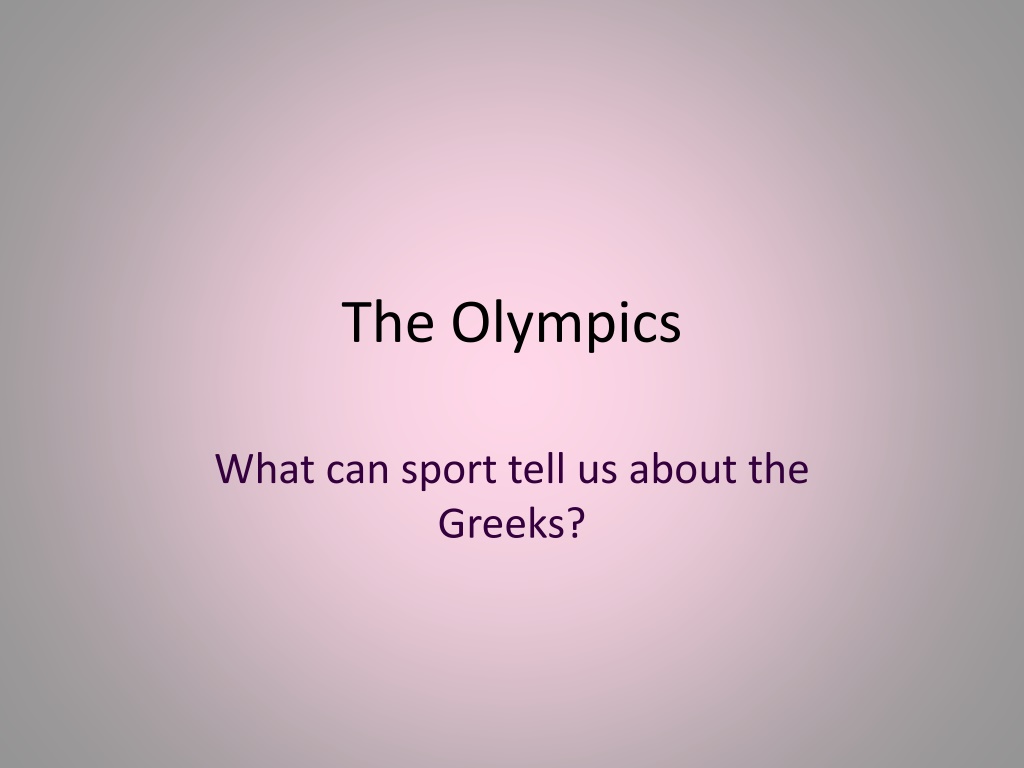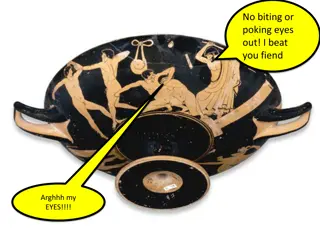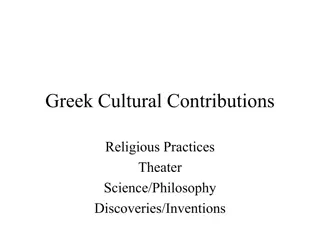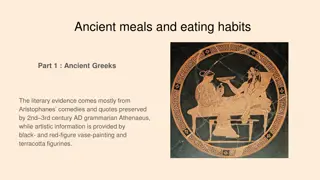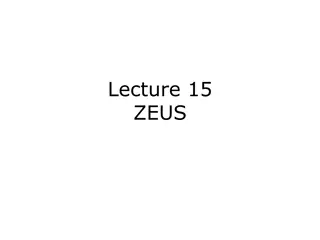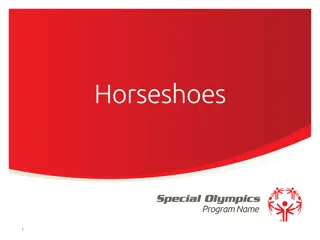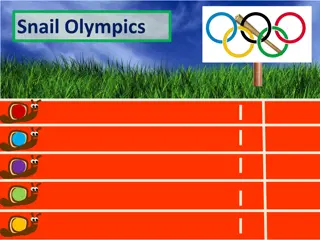Ancient Greek Olympics: Insights into Sports and Culture
The ancient Greek Olympics provide a window into the sporting culture of the Greeks. Dating back to the 9th century BC, the games evolved over time to include various events like footraces, wrestling, boxing, and chariot racing. Competitors were free-born Greek men, with prizes including olive leaf crowns and statues. Cheating was frowned upon, and strict oaths were taken to uphold the integrity of the games. Spectators flocked to the stadiums, with the rich enjoying hotel rooms while others slept in tents. The Olympics offered more than just sports, with feasts, speeches, and trading opportunities attracting people from far and wide.
Download Presentation

Please find below an Image/Link to download the presentation.
The content on the website is provided AS IS for your information and personal use only. It may not be sold, licensed, or shared on other websites without obtaining consent from the author. Download presentation by click this link. If you encounter any issues during the download, it is possible that the publisher has removed the file from their server.
E N D
Presentation Transcript
The Olympics What can sport tell us about the Greeks?
Origins of the games. The Greeks were not the first culture to hold competitive sports. Wrestling scenes have been found for example in Egyptian tombs. The Iliad has scenes of sporting competition in it. At Patroclus funeral Achilles holds a games with: chariot racing, footrace, discus, boxing and wrestling. First games probably somewhere in the 9th Century BC. First documentary sources 776BC. Ended in 4thCentury AD.
The first games The first 13 had only the footrace Over time longer races and new events were added Held at Olympia, in the Peloponnesus, on the site of a major temple. Held to honour Zeus. Greeks came from all over the Mediterranean. A truce was delcared a month before the games to allow people to travel.
Zeus The statue of Zeus was one of the seven wonders of the world. Covered in gold and ivory. Built circa 435BC 12 metres tall Made by Phidias who also designed the statue of Athena in the Parthenon. Destroyed by Caligula in 1stcentury AD
Competitors Free born Greek men and boys only. Women couldn t compete but could enter the equestrian events as owners of horses and teams. Prizes were a crown made of olive leaves and a statue erected at Olympia Fame, free meals were common
Judges All came form the local area. But cheating was very frowned upon and fines imposed.
Pausanias 5.24.9ff) it is the custom for athletes, their fathers and their brothers, as well as their trainers, to swear an oath upon slices of boar's flesh that in nothing will they sin against the Olympic games. The athletes take this further oath also, that for ten successive months they have strictly followed the regulations for training. An oath is also taken by those who examine the boys, or the foals entering for races, that they will decide fairly and without taking bribes, and that they will keep secret what they learn about a candidate, whether accepted or not." (
Spectators Stadium could hold around 50,000. People slept in tents or rough but athletes and the rich had hotel rooms. Games ended with a feast. Politicians and traders took advantage of the crowds to make speeches and sell goods.
Women Married women could not attend, on pain of death Unmarried women were allowed to attend There were games for women. The Maiden s footrace in honour of Hera, (about 160m)
